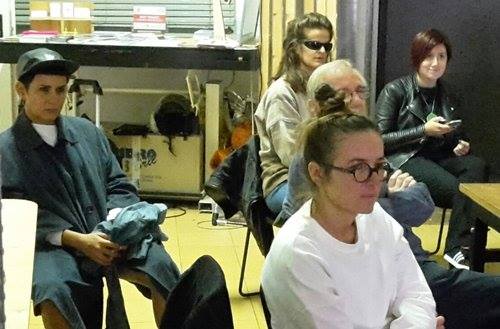In a workshop held on september 18th at WeMake I could disseminate and share some elements of the ethnographic research as well as some sounds from previous researches in the hard sciences, anthropology and ethnomusicology.
The question we moved from was: how could sounds be important for social research about health and for opencare?

Among the participants there were anthropologists, DJs, WeMake staff all interested in sound studies about opencare
In first place sounds make evident the dominance of a visual human dimension and the ocular centrality. Trying to move beyond a ocular centrality means to connect to a much open world of perceptions. On a further level researching on sounds problematise the care universe by different perspectives at home, in a healthcare environment in the physical worls as online.
Experiences in diverse cultures show how much emotions, beliefs and practices can be connected to sounds. Sounds are not only connected to a well being, but are structural in certain social contexts and by certain perspectives we cannot deny.
The presence of hackers, designers and makers in the opencare awareness european initiative represents not only an occasion to deal with how designers and makers shape care in different and unexpected ways, but on how reality of care can be declined and understood in many different ways.
Hear the negotiation between two makers (one of the two blind) while setting a software for the voice instruments’ Maker In Residence project
An input from Sound studies’perspective might be fruitful and challenging in researching about issues such as Quality of Life, health environment design, healthcare without harm, blind people, or whoever might benefit from sounds or silence. Here are the slides with all the working links to the resources.